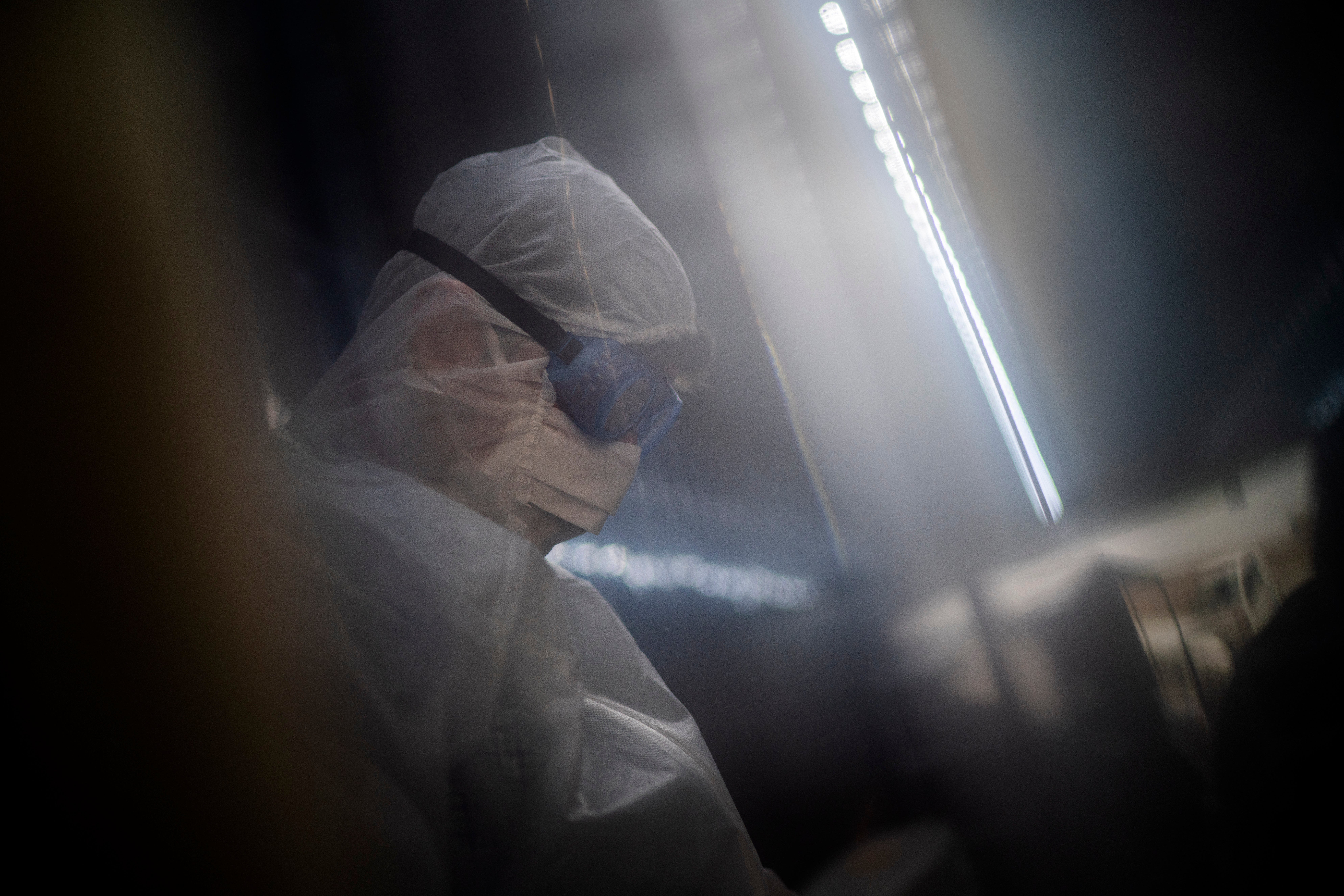EXPLAINER: UN vaccine plan for poor countries nears rollout
It’s nearly launch time for COVAX, the United Nations’ unprecedented program to deploy COVID-19 vaccines for hundreds of millions in need around the globe

Your support helps us to tell the story
From reproductive rights to climate change to Big Tech, The Independent is on the ground when the story is developing. Whether it's investigating the financials of Elon Musk's pro-Trump PAC or producing our latest documentary, 'The A Word', which shines a light on the American women fighting for reproductive rights, we know how important it is to parse out the facts from the messaging.
At such a critical moment in US history, we need reporters on the ground. Your donation allows us to keep sending journalists to speak to both sides of the story.
The Independent is trusted by Americans across the entire political spectrum. And unlike many other quality news outlets, we choose not to lock Americans out of our reporting and analysis with paywalls. We believe quality journalism should be available to everyone, paid for by those who can afford it.
Your support makes all the difference.It’s nearly launch time for COVAX, the United Nations' unprecedented program to deploy COVID-19 vaccines for hundreds of millions in need around the globe.
More than two months after countries like Britain and the United States started immunizing their most vulnerable people, the U.N. s health agency gave its approval Monday to a vaccine developed by Oxford University and AstraZeneca, which should trigger the release of hundreds of millions of doses by COVAX.
COVAX missed its own target of starting vaccination in poor countries at the same time as immunizations were rolled out in rich countries, and numerous developing countries have signed their own deals to buy vaccine, fearing the program won't deliver.
The World Health Organization and partners hope COVAX can finally start shipping out vaccines later this month.
Here’s a look at the project:
WHAT IS COVAX, AND WHY DOES IT MATTER?
It's a cooperative program aimed to make sure low- and middle-income countries get equitable access to COVID-19 vaccines. Some buy them, others get them for free thanks to donor countries and charities.
COVAX hopes to deploy some 336 million doses by the end of June, and around 2 billion doses by the end of the year.
WHO chief Tedros Adhanom Ghebreyesus said last week that over 130 million doses of vaccine have been deployed globally — three quarters of them in only ten countries. Almost 130 countries with 2.5 billion people haven't administered a single dose, he said.
WHY IS WHO ‘EMERGENCY USE’ APPROVAL IMPORTANT?
Unlike most wealthy nations, many developing countries don’t have the resources to assess whether vaccines should be approved. They rely on the WHO to determine if vaccines are safe, effective and have been made properly.
The most impactful moment for COVAX so far looms with Monday's approval of the AstraZeneca vaccine; the program has bought hundreds of millions of doses, although there is no guarantee when countries will receive them. The Serum Institute of India, which will produce the majority of them, has previously said its provision of shots to COVAX would be “calibrated” in line with India's own domestic and other needs.
But questions have arisen recently about the vaccine's use, given the increasing spread of the virus variant first identified in South Africa. Early studies suggest the AstraZeneca vaccine is less effective against that variant and South Africa's government delayed plans to roll out its own supplies of the vaccine. The WHO said last week the AstraZeneca shot should still be used in countries that have detected variants — but the head of the Africa Centers for Disease Control and Prevention warned the region's countries to prioritize other vaccines instead.
WHO GETS THE DOSES FIRST?
COVAX leaders haven’t said.
Gian Gandhi, the UNICEF supply coordinator for COVAX, said a confirmation of the doses that the U.N. children's agency can deploy will come once the WHO has approved the AstraZeneca vaccine.
The WHO takes into account readiness and need, and has placed a priority on getting doses to health care workers and vulnerable people like the elderly.
The deployment “will vary from country to country," Gandhi said. “In some instances, the timeframe could be in the range of days and weeks; in others it could be several weeks.”
___
Lori Hinnant contributed from Paris.